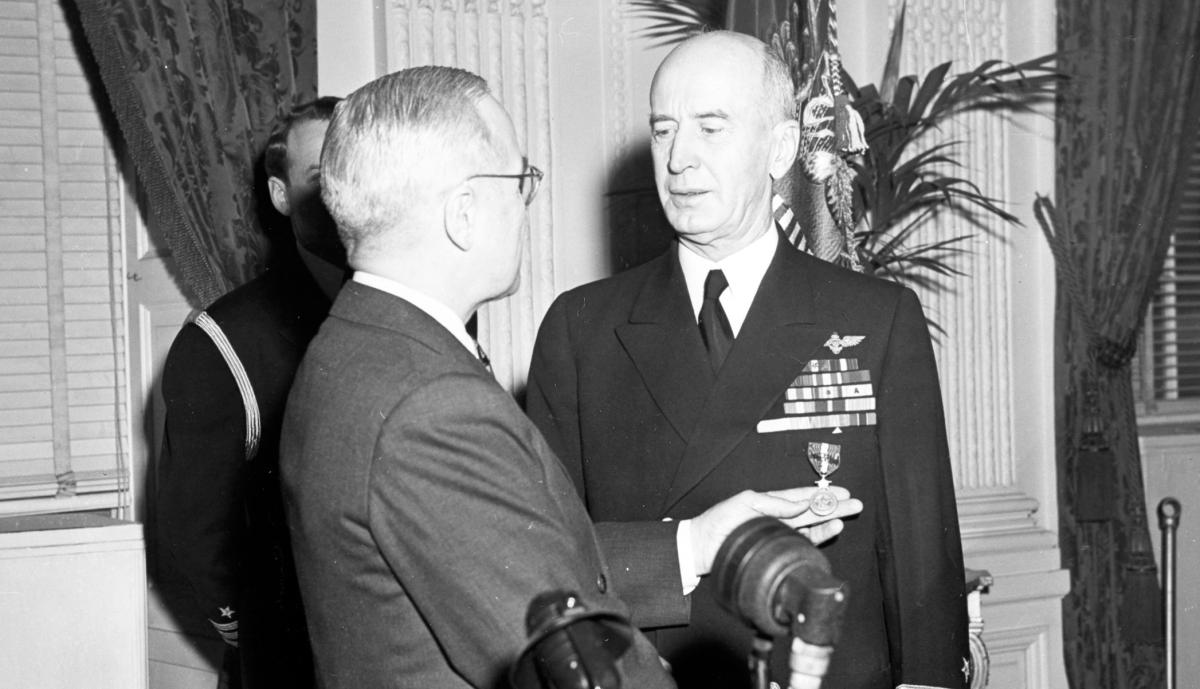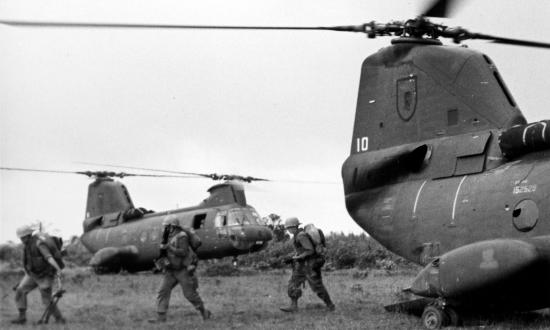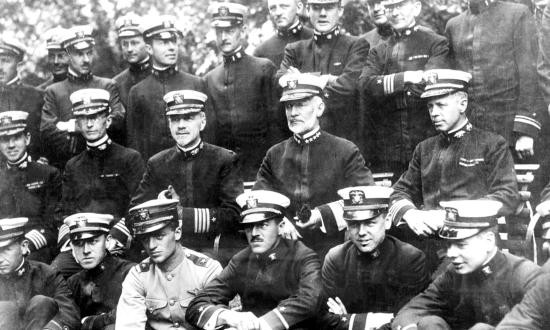June 1921 Proceedings—“Is the Navy awake to the importance of complete tactical knowledge and coordination in every form of battle effort?” Commander John Staples, U.S. Navy, asked in “A Tactical Awakening.” “Present sea action is rapidly moving phases in which all the various weapons have definite tasks. Not only must the general battle plan be understood by force and individual commanders, with a thoroughly grasped doctrine to meet the battle stages, but there must be the appreciation of what the other task groups or forces are thinking and propose to do.”
June 1971 Proceedings—In “Navy Sundowner Par Excellence,” Admiral J. J. Clark, U.S. Navy (Retired) wrote, “At the head of my list of Sundowners (characters), and I use the term in admiration, stands one Ernest J. “Jesus” King, head of the Navy in World War II. King was so tough, it was said, that he shaved with a blow torch. In fact, during the war, as a compliment, someone did present him with a gold-plated torch. It takes fortitude and a ‘win’ psychology to win in war, and King was the ‘Maestro.’ Martinet, yes, but the right kind. He got the job done.”
June 1996 Proceedings—In his prize-winning essay “The Neglected Dimension of Leadership,” Captain James H. Anderson, U.S. Marine Corps Reserve, wrote, “In military circles, humility is considered a sign of weakness; few acknowledge its worth, except perhaps in abstract terms. Most military leaders would prefer that humility discussions be left with the chaplain. Lumped with tentativeness, meekness, and timidity, humility is considered a handicap, not a virtue. Yet a cultivated sense of humility should be a prized trait in U.S. military leaders. Humility and self-confidence are not mutually exclusive character traits.”
A. Denis Clift
Golden Life Member






